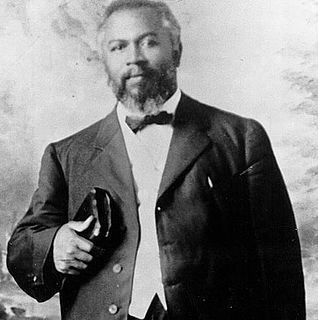A Quote by Albert Camus
We [writers] must know that we can never escape the common misery and that our only justification, if indeed there is a justification, is to speak up, insofar as we can, for those who cannot do so.
Related Quotes
I'm afraid that in the United States of America today the prevailing doctrine of justification is not justification by faith alone. It is not even justification by good works or by a combination of faith and works. The prevailing notion of justification in our culture today is justification by death. All one has to do to be received into the everlasting arms of God is to die.
Justification and sanctification are both God's work, and while they can and must be distinguished, the Bible won't let us separate them. Both are gifts of our union with Christ, and within this double-blessing, justification is the root of sanctification and sanctification is the fruit of justification.
The moral justification of capitalism does not lie in the altruist claim that it represents the best way to achieve 'the common good.' It is true that capitalism does -- if that catch-phrase has any meaning -- but this is merely a secondary consequence. The moral justification for capitalism lies in the fact that it is the only system consonant with man's rational nature, that it protects man's survival qua man, and that its ruling principle is: justice
A rigorous doctrine of imputation is not only limiting but ends up doing a disservice to the nature of grace and justification. It makes the transactions of the gospel basically juridical. In the Roman view, justification and sanctification are a seamless fabric. It is more than a question of God simply seeing us through a legal scrim of Christ's righteousness. Righteousness actually begins to transform us.
The inner change, justification, is effected at the moment of salvation. The outer change in the believer's daily walk, sanctification, continues throughout life. But the progressive work of sanctification is only fully effective when the radical, inner transformation of justification is realized and appropriated by faith.
Creating new people, by having babies, is so much a part of human life that it is rarely thought even to require a justification. Indeed, most people do not even think about whether they should or should not make a baby. They just make one. In other words, procreation is usually the consequence of sex rather than the result of a decision to bring people into existence. Those who do indeed decide to have a child might do so for any number of reasons, but among these reasons cannot be the interests of the potential child. One can never have a child for that child’s sake.
While society cannot provide employment for its members, the production/work/income nexus has to be abandoned as a justification for our present parsimony to the unemployed. An assumption cannot be used to justify making second-class citizens of those who are unfortunate enough to constitute living proof of the inaccuracy of that assumption.
It means that we must abandon the method of civil disobedience, non-cooperation and satyagraha. When there was no way left for constitutional methods for achieving economic and social objectives, there was a great deal of justification for unconstitutional methods. But where constitutional methods are open, there can be no justification for these unconstitutional methods. These methods are nothing but the Grammar of Anarchy and the sooner they are abandoned, the better for us.









































